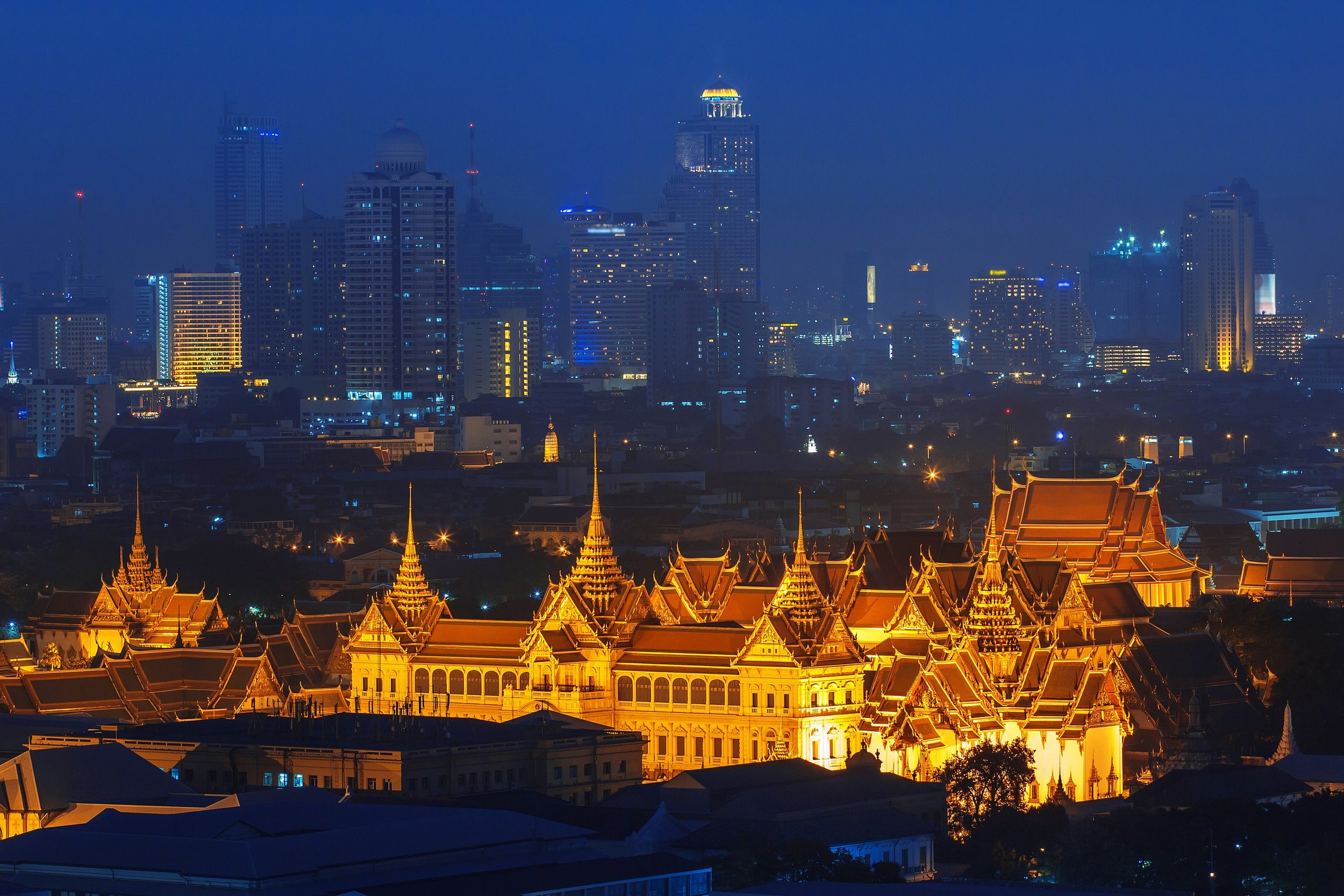Massaman Curry
Ingredients: AAA beef, peanuts, potatoes, yam, ube, white onion, red onion, garlic, sugar, soybean oil, dried chill pepper, tamarind juice, shallot, salt, lemongrass, spices (coriander seeds, cumin, cardamom, cinnamon, bay leaves, lesser galanga, cloves), kaffir lime, galangal
Massaman Curry
The name “Massaman” Curry or "แกงมัสมั่น" is believed to derive from the term“Musliman” or "มุสลิมาน" which is a plural form of the word "Muslim” or “มุสลิม" itself. It is considered a special dish traditionally prepared for Muslim ceremonies and festivities, such as Ramadan.
The ancient map of Ayutthaya, an erstwhile Siamese-Thai Kingdom, highlights Bangkok as a mere toll station fortress town
The curry is characterized by the use of various meats such as chicken, beef, lamb, and more, which are first fried with spices before being simmered in a coconut milk-based curry. Additional spices may include cumin, cardamom, coriander seeds, and roasted peanuts to enhance the flavor. The seasoning typically follows the Muslim culinary tradition with a rich combination of sour, salty, and sweet.
The roots of the “Massaman Curry” can be traced back to Persian culture, specifically influenced by individuals of the Muslim faith. This culinary connection made its way into the Thailand, particularly among those with Muslim ancestry, dating back to the late Ayutthaya period, the Siamese-Thai capital more than 250 years ago. During this time, Muslims from Persia, led by Sulthan Sulaiman, established a colony and trade station in what is now Bangkok, engaging in commerce with Ayutthaya situated a few days up the Chao Praya River.
Map of “Krung Thep Mahanakhon Amon Rattanakosin Mahinthara Ayuthaya Mahadilok Phop Noppharat Ratchathani Burirom Udomratchaniwet Mahasathan Amon Piman Awatan Sathit Sakkathattiya Witsanukam Prasit” or “Bangkok”
In 1767, Ayutthaya faced devastation as the Burmese successfully sacked it following a two-year-long siege. Seeking refuge, Muslim inhabitants led by Sheik Ahmad Kummi relocated to the Siamese-Thai newly founded capital, Thonburi, on the opposite side of Bangkok. These refugees settled along the banks of the Bang Luang Canal, present-day Bangkok Yai "Big" Canal, and significantly contributed to the growth of the Muslim community in the soon-to-be modern-day capital of Thailand, "Bangkok," where their community has endured to this day. If you were to visit the area, you would see distinct Muslim communities lining the canal, with numerous mosques scattered along its banks.
Food scene also changed from the other parts of Bangkok, various Muslim dishes like Massaman Curry, Kooruma Curry, Kabuli Rice, Lutti (Roti), Hrum, and Matsakot are embedded in the lifestyle of these Thai Muslim people. Their culinary heritage persists through generations to the present day.
King Rama I, the Founder of Bangkok as Siamese-Thai capital today, having resided in the same area, along the Bang Luang Canal prior to ascension, established a profound and long lasting connection with the Muslim community of Bang Luang Canal.
Bun-Nak's "Suriyasai" Noble Estate features a designated section within the property that houses an authentic Thai restaurant, recognized with a prestigious Michelin 3-star rating
Following his ascension, one of his consorts, Hong, held a significant position as the daughter of an esteemed Muslim leader representing the Muslim community within the Kingdom of Siam. Throughout Thailand's royal history, every monarch has taken numerous Muslim consorts and wives from the Muslim community of Bang Luang Canal, specifically a noble house of Bun-Nak. It can be asserted that a substantial portion, if not at least half, of our lineage stems from these matrimonial unions.
Hence, our Massaman Curry stands as an evolution nurtured by the Royal Kitchen over centuries. The inception of this culinary tradition, coupled with fragrant Kabuli Rice, dates back to 1806 when the King Rama I requested the Muslim community to cook Massaman Curry and Kabuli Rice for the monks involved in celebrating the completion of the Royal Temple. Subsequently, these dishes have evolved into a tasty tradition of numerous royal ceremonies.
It was even mentioned by King Rama II, a highly esteemed poet, enshrined the exquisite essence of "Massaman" curry within his captivating verses. His poetry beautifully captured the culinary mastery of his Queen, praising the dish's opulent and flavorful curry, redolent with robust cumin notes.
In essence, our family's Royal version of Massaman Curry stands as a testament to the harmonious fusion of cultures, a symbol of enduring love and dedication passed down through generations. Rooted in the rich tapestry of Thai history, this cherished dish not only embodies the cultural ties with the Muslim community but also reflects the inner palace traditions and the evolving culinary preferences within our family. Through meticulous care and adaptation, our version infuses the traditional flavors with Thai inclinations, enhancing it with the brightness of tamarind or citrus juices, and introducing an abundance of potatoes or sweet potatoes, a unique touch seldom found in the central plains. As it continues to grace our tables, this bespoke rendition of Massaman Curry honors the diverse heritage, familial bonds, and the enduring spirit of culinary innovation within our esteemed lineage.






